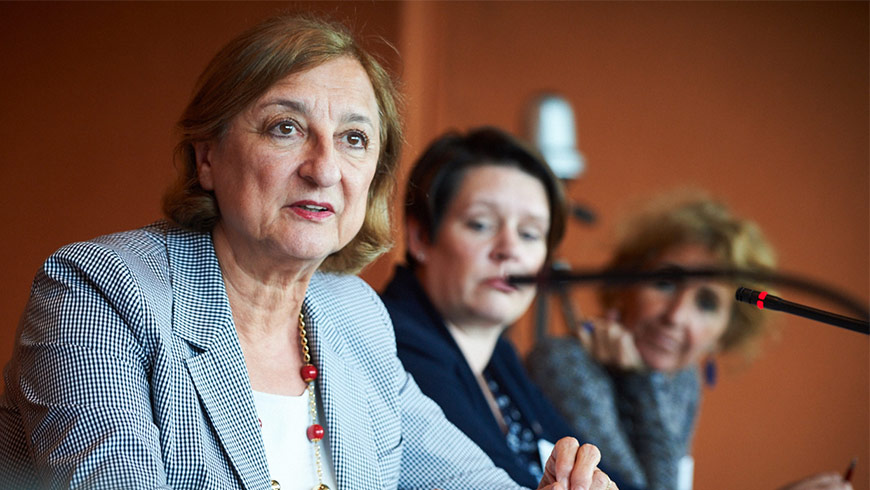How can integration policies implemented by cities contribute to a better inclusion of migrants at national level?
Gabriella Battaini-Dragoni opened today an Intercultural Cities’ event on “How can inclusive integration policies of cities contribute to a better management of migration at national level?”, with a focus on “Urban policies for the inclusive integration of migrants”, aiming at innovative ways of dealing with the challenges and opportunities of human mobility.
Sponsored by MPs Huovinen (Finland) and Santerini (Italy), the side event marked the full-day debate on migration taking place during Parliamentary Assembly session, as well as the adoption of a new report by Susanna Huovinen on “Integration of refugees in times of critical pressure: learning from recent experience and examples of best practice”, by presenting examples of intercultural policies implemented by cities involved in the Intercultural Cities programme.
“Ten years ago, we had a theory: a belief that by moving away from the binary choice of assimilation and multiculturalism, and opting instead to harness diversity as a competitive advantage, we could improve our cities for all their residents and minimise any tension or conflict.
We believed that institutions and public spaces could be opened up to everyone, that enterprises and neighbourhoods could be mixed, and that trust and friendship could be built through everyday contact between people of different backgrounds”, underlined Deputy Secretary General.
As of today, 120 cities from 32 countries in Europe and beyond (including Australia, Canada, Israel, Japan, Mexico and Morocco) have successfully signed up to the to the Intercultural Cities programme.



